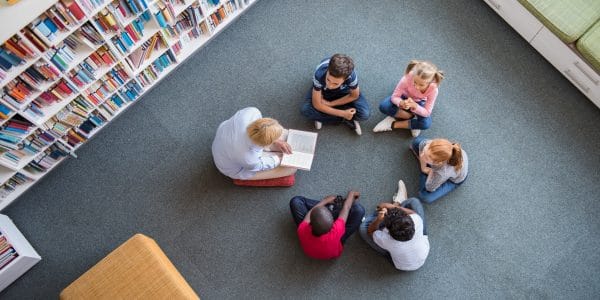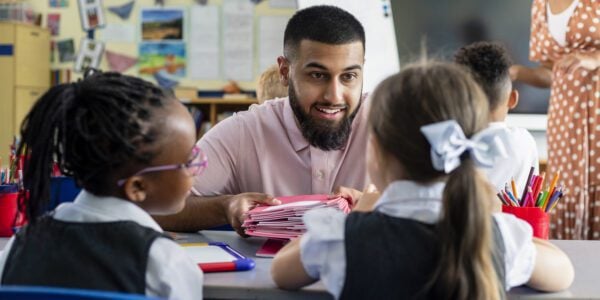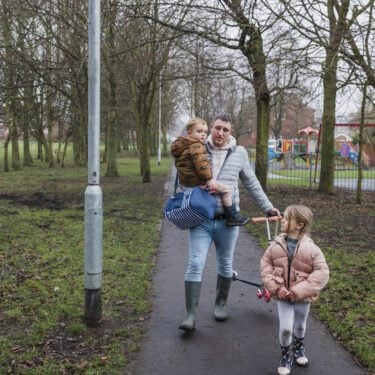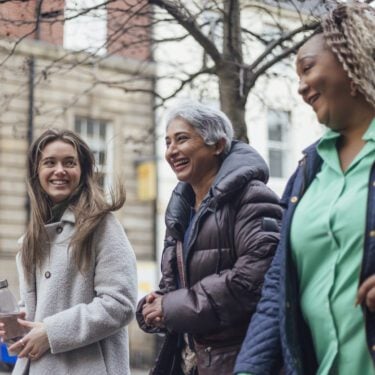
18/07/22
3 min read
Welsh schools have a wider disadvantage gap than English schools, but both nations have made only modest progress in closing this gap during the last decade. This is according to a new report from the Education Policy Institute (EPI) funded by the Nuffield Foundation.
The ‘disadvantage gap’ is a leading measure of social mobility and an indicator of policymakers’ progress in reducing inequalities in education. Pupils are classed as ‘disadvantaged’ if they were eligible for free school meals in the past six years, and ‘persistently disadvantaged’ if they were eligible for free school meals for 80% of their time in education.
Comparing educational inequalities across England and Wales is challenging based on published statistics, due to different reforms to GCSEs and performance measures over time across the two nations. EPI make use of detailed administrative data for both nations and apply tried and tested methods for assessing the disadvantage gap over time, in the face of multiple reforms. The research finds that whilst Wales suffers a greater disadvantage gap in GCSE results than England, progress in narrowing disadvantage gaps has been modest for each nation over the last decade.
Key findings
Figures on the impact of educational inequality for 2019 reveal Wales’ disadvantage gap to stand at 22-23 months, with England’s narrower at 18 months. Corresponding figures from 2011 show slow progress in narrowing these gaps, with figures only down from disadvantage gaps of 24 months in Wales and 20 months in England in 2011.
Persistently disadvantaged pupils experienced still larger disadvantage gaps, with those in England suffering a persistent disadvantage gap of 23 months and those in Wales experiencing 29 months. With little sign of these persistent disadvantage gaps closing, alongside an expectation of a growing number of pupils in this category, improving educational outcomes for the persistently disadvantaged should be prioritised by policymakers.
While it’s clear that Welsh schools in deprived areas suffer greater disadvantage gaps than their English counterparts, the report finds no evidence of this difference being a result of policy divergences between the two nations over the last decade.
Although reasons for Wales’ higher disadvantage gap predate 2010, the Welsh local authorities with the highest disadvantage gaps should still seek best practice from those deprived areas of England faring better with comparable demographics. There are many comparable areas of England with similar levels of persistent poverty, but lower disadvantage gaps, such as Barnsley, Gateshead, Portsmouth, Salford, Stockton-on-Tees and Rotherham.
To improve social mobility across each nation, EPI encourages a renewed focus to be targeted at narrowing disadvantage gaps within schools.
Recommendations
- Local authorities in Wales need to learn more from deprived areas of England with similar demographics, and which have managed to achieve smaller disadvantage gaps over time.
- Targeted extra funding at more deprived schools has been shown to be effective at narrowing the disadvantage gap. More funding should be specifically targeted at pupils experiencing persistent disadvantage in both nations.
- A high focus on teacher quality is crucial, through policies designed to improve recruitment and retention of high-quality teachers in more deprived areas, such as salary supplements, and access to high-quality professional development.
- One-to-one and small group tutoring has been shown to be highly effective
- The most successful charter schools focus on frequent teacher feedback, the use of data to guide instruction, high-dosage tutoring, increased instructional time, and maintain a culture of high expectations.
- With schools unlikely to be able to close disadvantage gaps sufficiently on their own, a wider focus on child poverty, other parts of the education system, such as the early years, and other public services, such as children’s services is required.
Dr Luke Sibieta, Research Fellow at EPI, said: “The gap in education outcomes between poor children and the rest is far too wide in both England and Wales. But the results for Wales are particularly concerning – with poor children almost 2 years behind on average by the time they take their GCSEs, compared with 18 months in England. And children who are long-term poor in Wales are almost 2 and a half years behind, compared with just under 2 years in England. Policymakers in both countries need to re-double their attempts to give poorer children a better chance in life, and Welsh policy makers need to consider if there are lessons which they can learn from the best performing areas of England, where gaps are far lower. In both countries, a range of measures is necessary including targeting more funding at schools with high levels of disadvantage, improving teacher quality in deprived areas and more one to one and small group tuition.”
Rt Hon David Laws, Executive Chairman of EPI, said: “This report highlights the huge attainment gaps in both Wales and England, gaps that have almost certainly widened since the COVID crisis hit. This new research also highlights how much bigger the gaps are in Wales, which should trigger a debate in Wales as to why these outcomes are so disappointing and what more can be done to turn things around. Across the UK, policymakers need to re-double their efforts to give poor children a better chance in life.”





















































